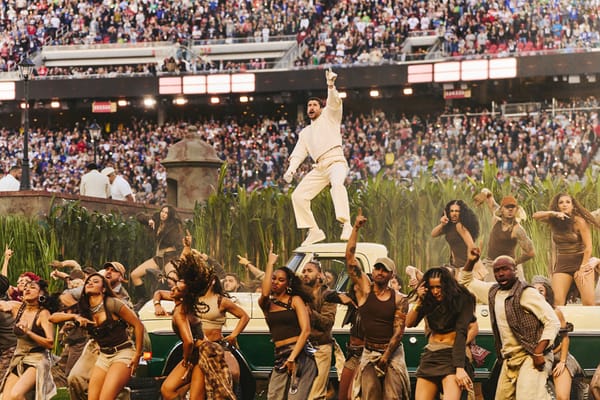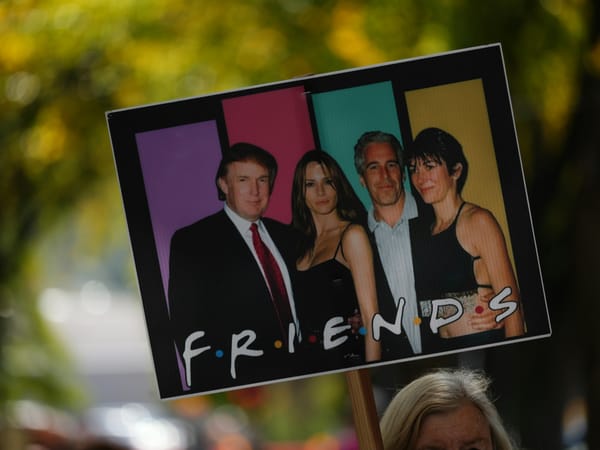A Touch of Xia侠 Between Blades and Wine Cups
When old swords tell new stories, Wuxia films and chivalrous ideals modernize over time.
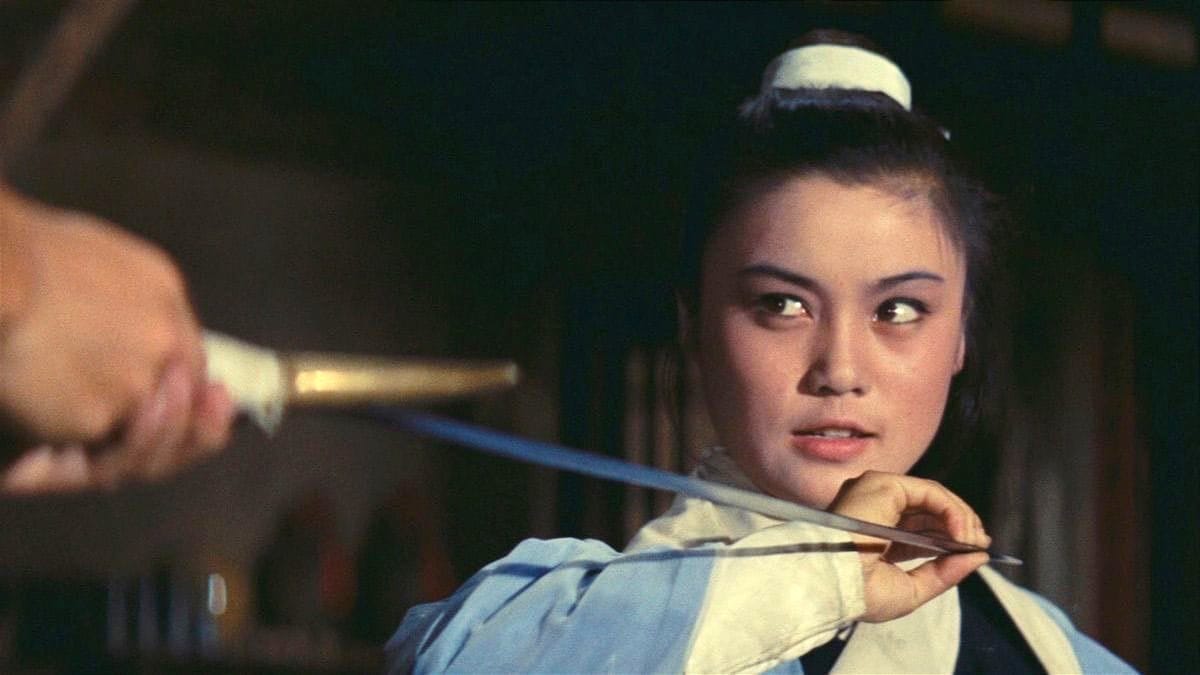
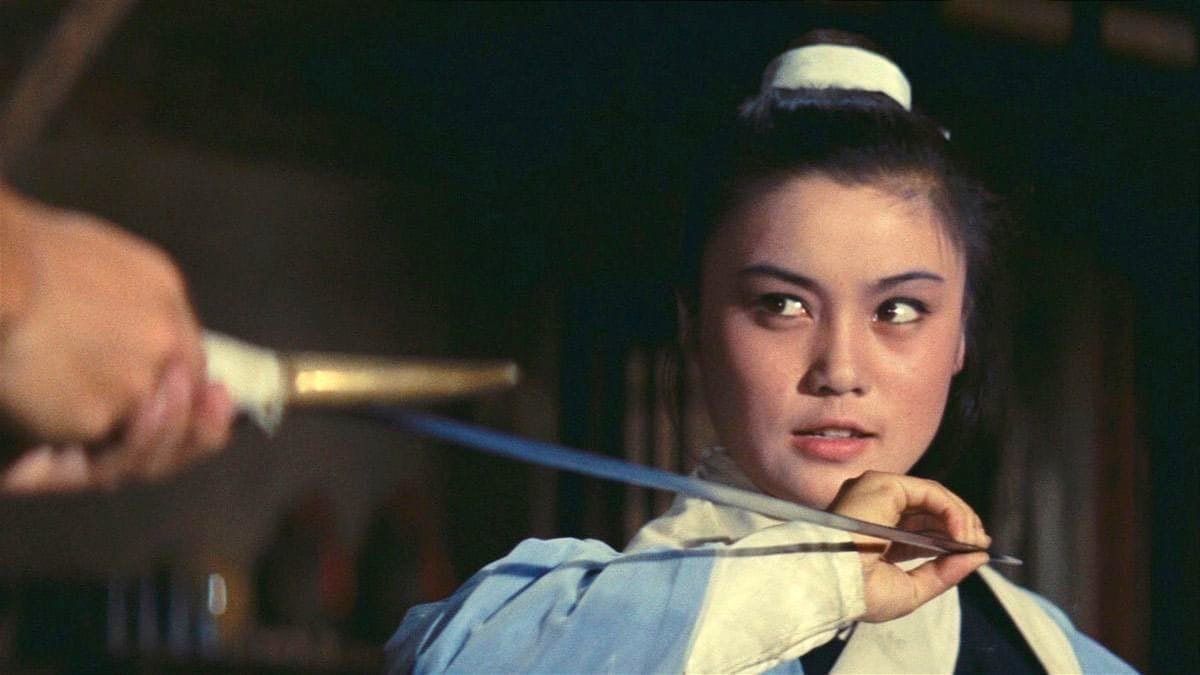
Having its essence deeply rooted in ancient Chinese history and culture, the movie genre of Wuxia, one of the most famous genres for Chinese films, stands timelessly to present Chinese history and nationalism, proudly featuring traditional Chinese values and East Asian chivalry sentiments. Over time, as China becomes increasingly connected to the world, the genre of Wuxia has eventually earned global popularity in the present days. It is observed that the Wuxia genre has evolved during its journey traveling across cultural and national boundaries. Through comparing two representative Wuxia films Crouching Tiger, Hidden Dragon (2000) and Dragon Inn (1967), we will explore in-depth the evolution of the Wuxia genre for nearly forty years in the light of cultural and historical influences, particularly examining the significant changes in setting, theme, and gender discourse that contribute to the modernization of the genre.
Tracing back hundreds of years earlier in ancient China, the genre of Wuxia is found originating from the martial arts novels during Ming and Qing dynasties. In these novels, such as Water Margin, or Outlaws of the Marsh, by Shi Nai’an, the conflict between Confucian-driven heroes who rebel against oppression and corrupt authorities is usually presented. A setting based on real history is also established to carry out historical criticism, revealing the problematic aspects of an ancient society that urge justice to exist in a violent form and fight against injustice.
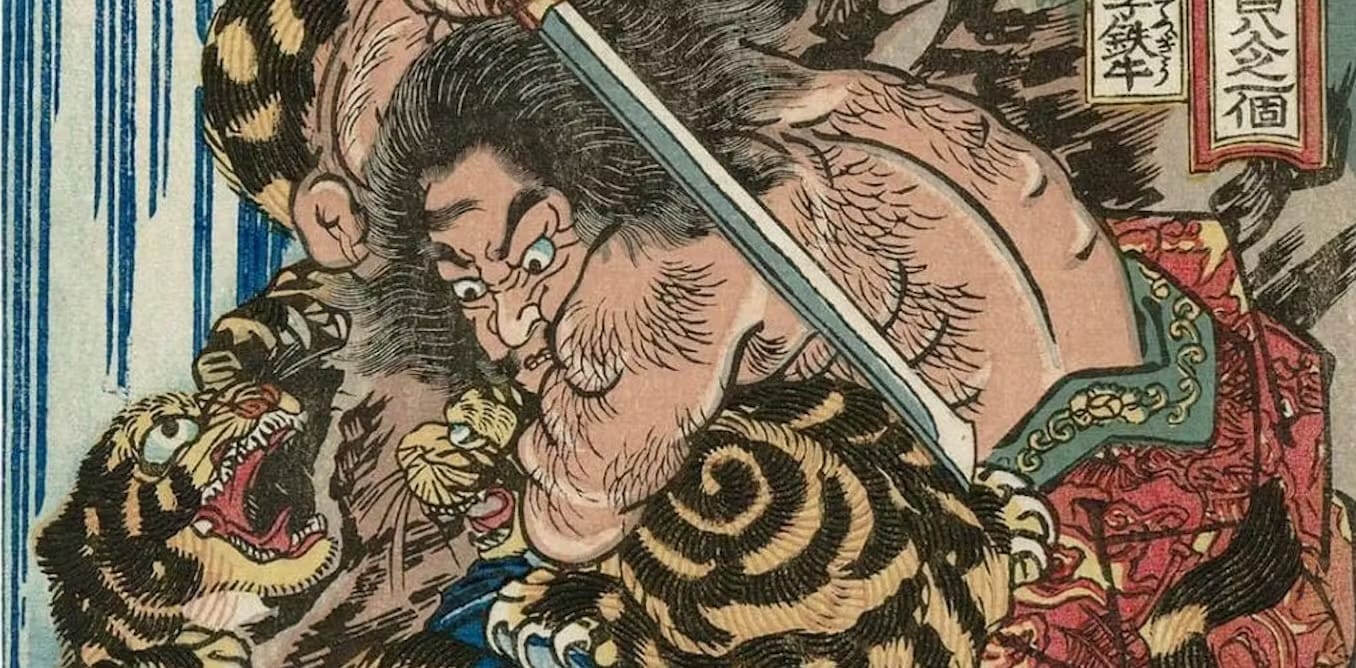
The Wuxia genre, in its early years before transforming into an international entertainment, inherited the style and outline of ancient martial arts novels, appealing to East Asian audience who are familiar with Chinese history, traditional tales, and Confucian thinking. Its setting and story are usually based on historicism.
Dragon Inn is a classical Wuxia film directed by King Hu in 1967. In the film’s opening scene, the narrator states that the film is set in 1457 A.D, Ming dynasty, a period marked by the totalitarian rule of eunuchs and governmental corruption, unfolding a story inspired by historical realism. Through depicting the loyal, righteous martial arts heroes’ resistance against the tyranny of the eunuch who came into power, the film reflects real social problems. In fact, the design of setting the story to be based on real history is highly relevant to the historical context in which the film was created.
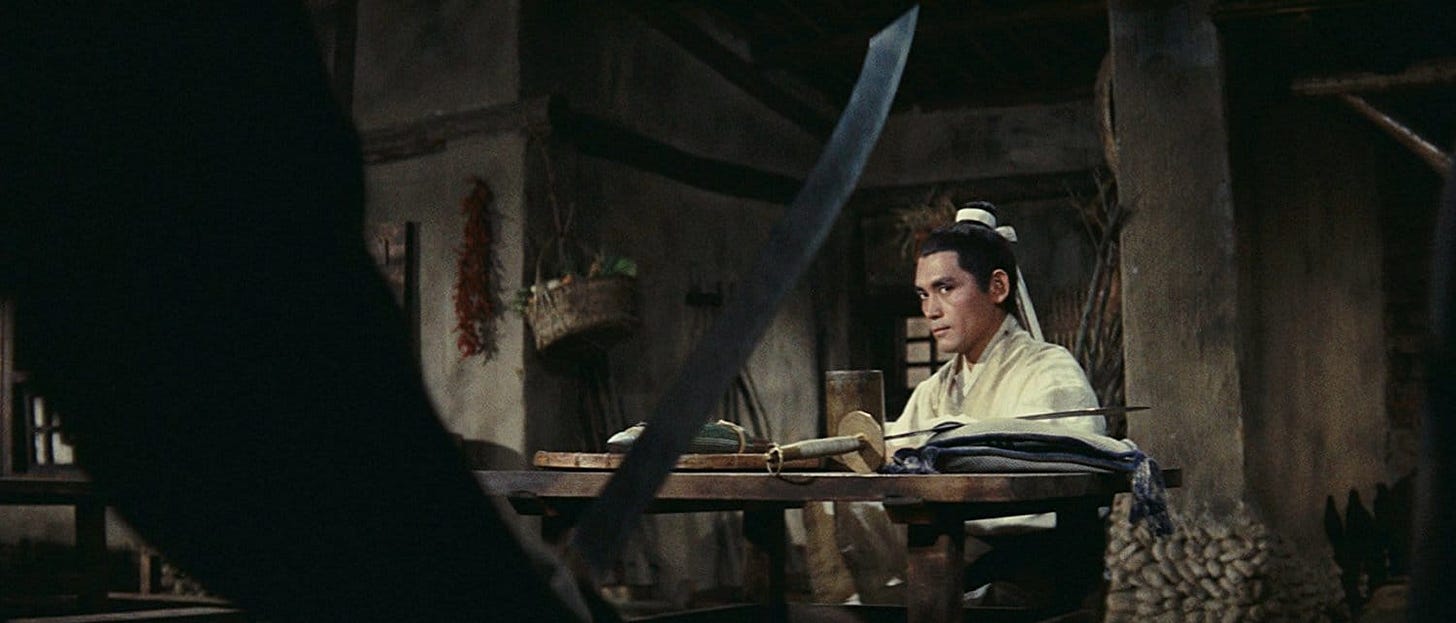
Film critic and historian Stephen Teo once mentioned in his book Art, Politics, and Commerce in Chinese Cinema that historicism (or historical criticism) in early Wuxia films serves the major purpose of “using the past to reflect the present.” In the late 1960s, Dragon Inn was shot in Taiwan. Meanwhile, the Cultural Revolution was taking place in mainland China. Old traditions, including martial arts, were considered feudal and banned from being shown through any form of art or entertainment by the mainland government. To break free from the restriction, partial production of the film moved to Taiwan. At first glance, Dragon Inn seems to criticize ancient social problems by telling a story based on the real history of Ming dynasty, but its anti-government sentiments also allude to the totalitarian rule of the mainland government during the Cultural Revolution.
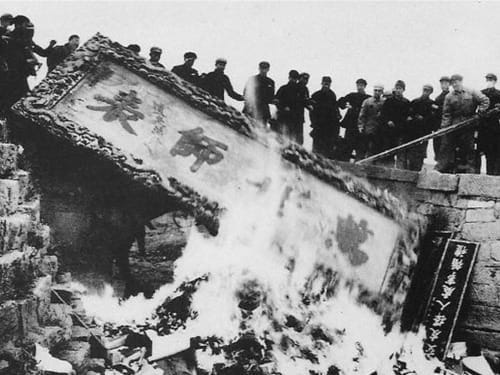
Achieving international success for its compelling, creative expression of traditional Eastern Wuxia sentiments, Crouching Tiger, Hidden Dragon (2000, directed by Ang Lee) is perhaps the most well-known Wuxia film worldwide.
While its story appears to be set in Qing dynasty China, the film does not indicate a direct connection to any specific historical period or event. And since the film was made in 2000, its primary audience was international, with relatively less knowledge of Chinese history and social events. The setting of Crouching Tiger, Hidden Dragon becomes imaginative rather than realistic, weakening its association with real history and politics. This offers Western audience more room for imagination of Chinese Wuxia and moderates historical and social criticism.
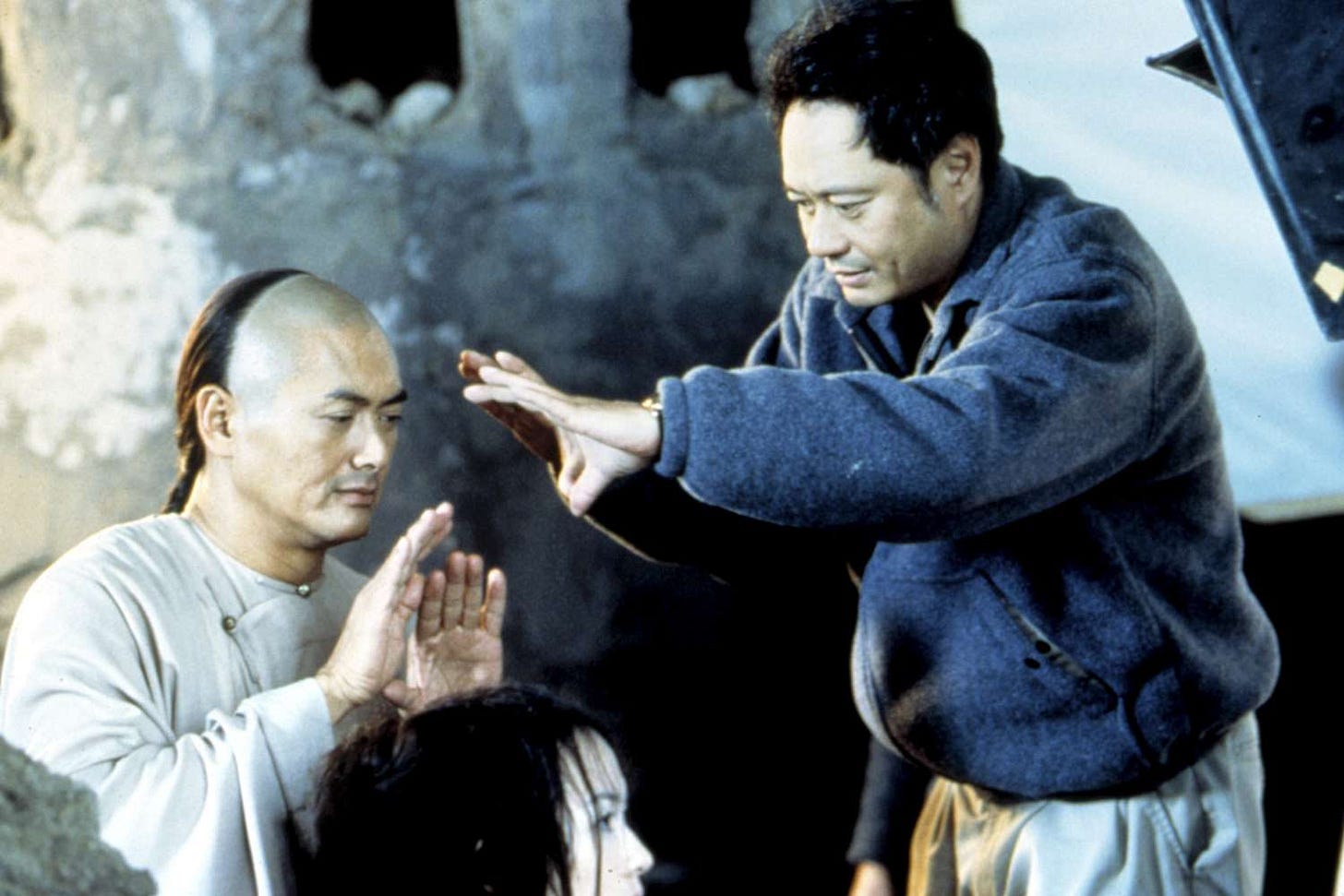
The Wuxia genre has further experienced a theme evolution during its modernization. It started with exploring justice vs. injustice and later on shifted toward revealing individual struggles that provoke universal empathy.
As one of the earliest Wuxia films, Dragon Inn was shot during the 1960s when the genre was mainly presented to East Asian audience whose countries’ history and cultural values root deeply in ancient Confucianism. To emphasize Confucian thinking, Dragon Inn underlines the theme of justice vs. injustice through portraying the chivalrous swordsmen who are driven by their Confucian ideals to resist evil authoritative forces. In the film, Cao, the eunuch in power, persecutes the loyal General Yu and plans to assassinate his exiled children at the Dragon Inn. To save the innocents, Wuxia heroes like Xiao and the Zhu siblings gather at the Dragon Inn, fighting against Cao and his fellow secret police.
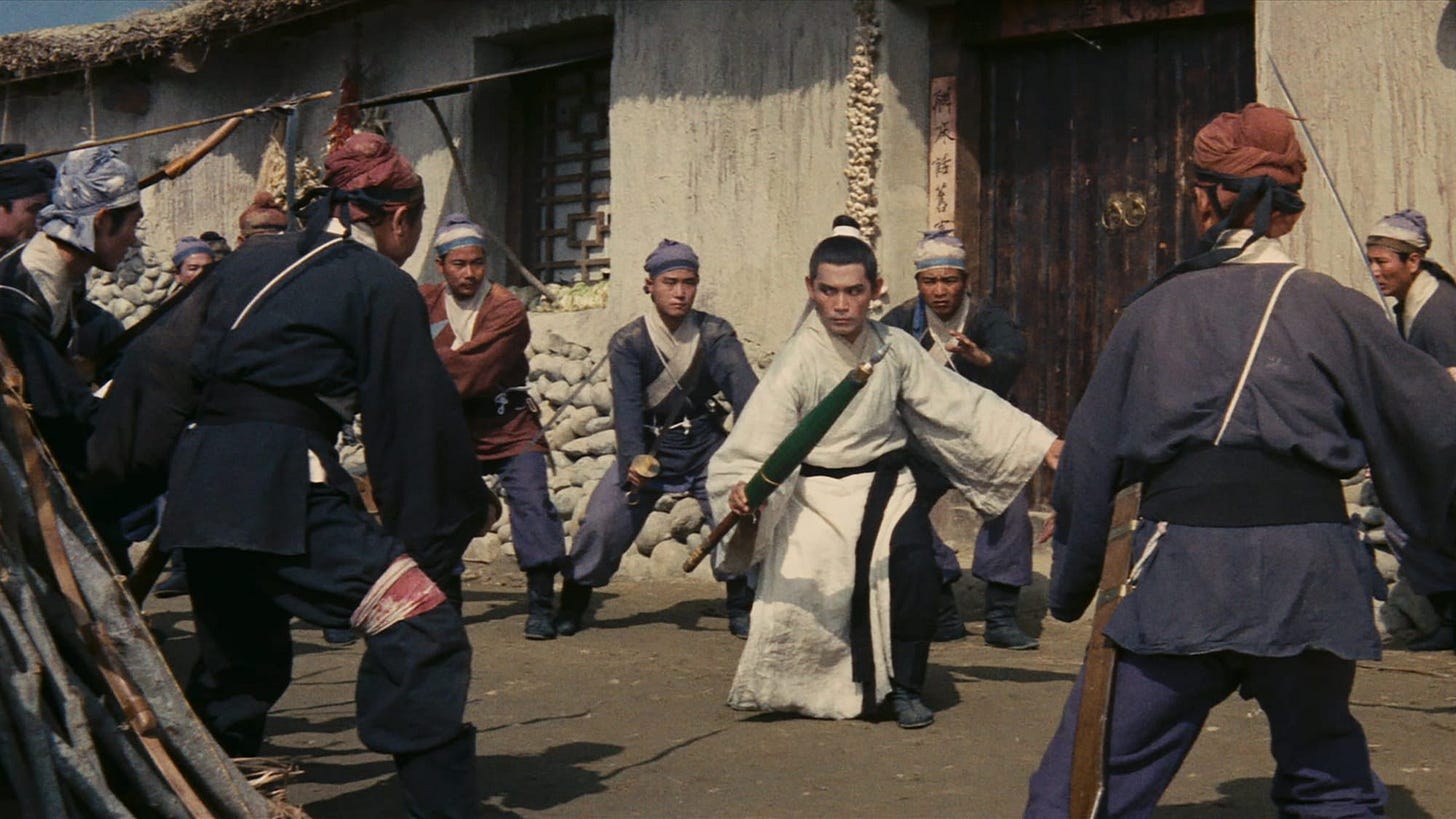
In old Wuxia films, the conflict between justice and injustice is usually shown in the different moral dimension of violence of martial arts warriors. Dragon Inn differentiates the justice of the heroes’ team and the injustice of Cao’s team based on how they balance Wu(武 martial arts) and Xia (侠 chivalry). In the scene where Xiao is bribed by Pi Shaotang, the leading secret police, he refuses Pi and claims that he has “earned fame and fortune for saving the descendent of a loyal minister.” [1:07:45-1:09:53] He criticizes Pi for weighting fame and profits over the Confucian values of benevolence and righteousness while emphasizing his firm determination to follow his spirit of “Xia” despite temptation, maintaining the Confucian virtue of loyalty. Pi then fiercely attacks Xiao when their negotiation fails, showing his reliance on his martial arts power to commit evil. As a result, by harmoniously balancing chivalry and martial arts, and thus keeping the symbiotic relationship of morality and violence, Xiao manages to embody justice. On the other hand, injustice is shown in Pi whose morality and righteousness lose to his martial arts power and belligerent desires.
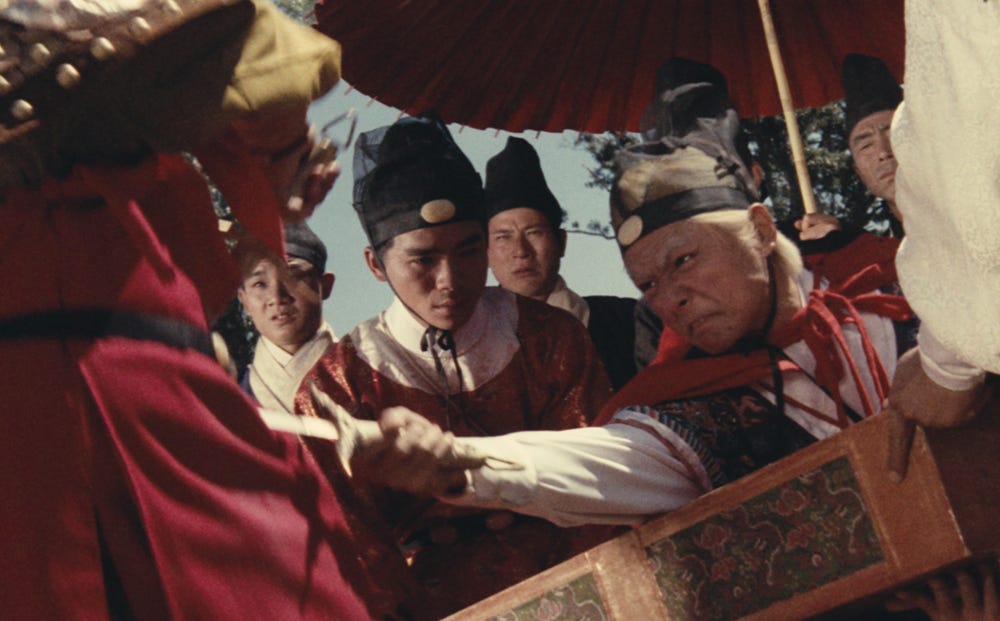
Entering the 21st century, the release of Crouching Tiger, Hidden Dragon brought the genre from East Asia to the world’s attention, making Wuxia films an art form that was not merely reserved for East Asian audiences to enjoy. Co-produced by China, Taiwan, HongKong, and the U.S, Crouching Tiger, Hidden Dragon combines Eastern and Western cultural values. The purpose is to allow international audiences who are not Chinese and are less familiar with Chinese history and the Confucian core of Wuxia beliefs to better resonate with the genre. Consequently, unlike Dragon Inn, which explores chivalry through traditional thinking, Crouching Tiger, Hidden Dragon delves into the inner emotions of characters and depicts the theme of duty vs. desire. By emphasizing individualism, Crouching Tiger, Hidden Dragon explores the sentiments of chivalry in a different way that evokes universal empathy.
In the film, Mu Bai and Shu Lien, the two highly skilled martial arts masters, harbor romantic feelings for each other. However, since Shu Lien was betrothed to a dead friend of Mu Bai, both of them decide to hide their feelings and stay loyal to Shu Lien’s arranged marriage. Mu Bai and Shu Lien sacrifice their romantic desires for their duties as disciplined martial arts masters, who have to adhere to the Confucian virtues of honor and loyalty strictly.
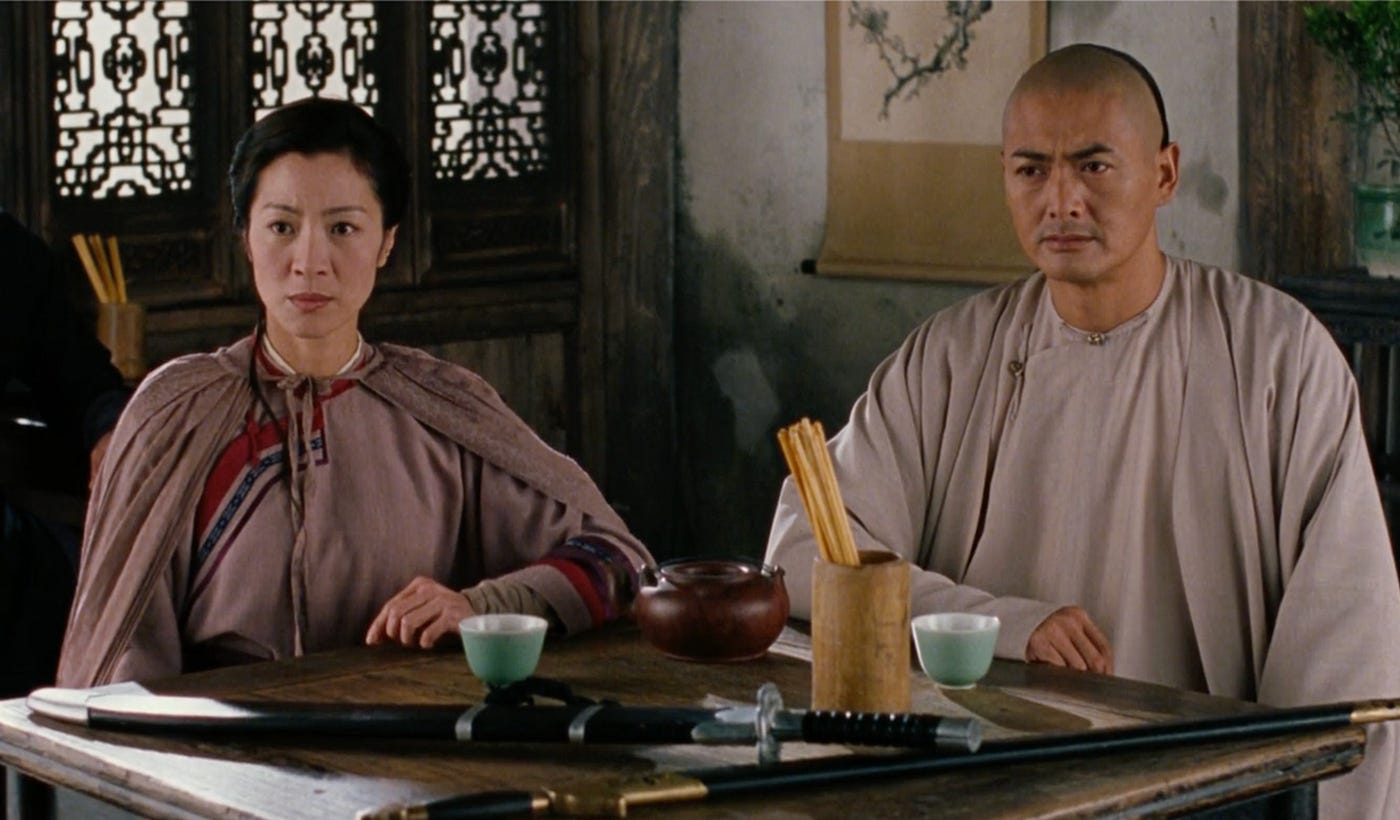
In contrast to Mu Bai and Shu Lien, Jiao Long and Xiao Hu, the two younger martial arts masters, represent the new, individualistic value of self-discovery and freedom that challenges the old Wuxia belief held by Mu Bai and Shu Lien. This time, emotions are honored over duties.
You may or may not know this: the names of Xiao Hu and Jiao Long are hidden in the Chinese characters of the film title —“Crouching Tiger (虎 Hu), Hidden Dragon (龙 Long).” Director Lee intentionally designed the title this way to hint at the surging desires, emotions, and passion within Jiao Long and Xiao Hu, all of which will eventually be revealed. In the film, Jiao Long also faces the dilemma between her duty to marry a husband who can benefit her family and her personal desire to live freely and stay with her lover Xiao Hu. Her decision is reckless yet bold—she runs away from home for an adventure after stealing the Green Destiny sword from Mu Bai and fights with other wuxia warriors [1:21:02-1:25:14], abandoning her family duties. Throughout her journey pursuing personal wills and freedom, Jiao Long acts against the Confucian codes of morality and honor, standing opposed to Mu Bai and Shu Lien who restrain their desires. The rebellion of Jiao Long and Xiao Hu highlights the importance of personal feelings and encourages people to break free from traditional rules and expectations. The message delivered matches the modern perspectives held by the new generation across the globe, inviting resonance and empathy.
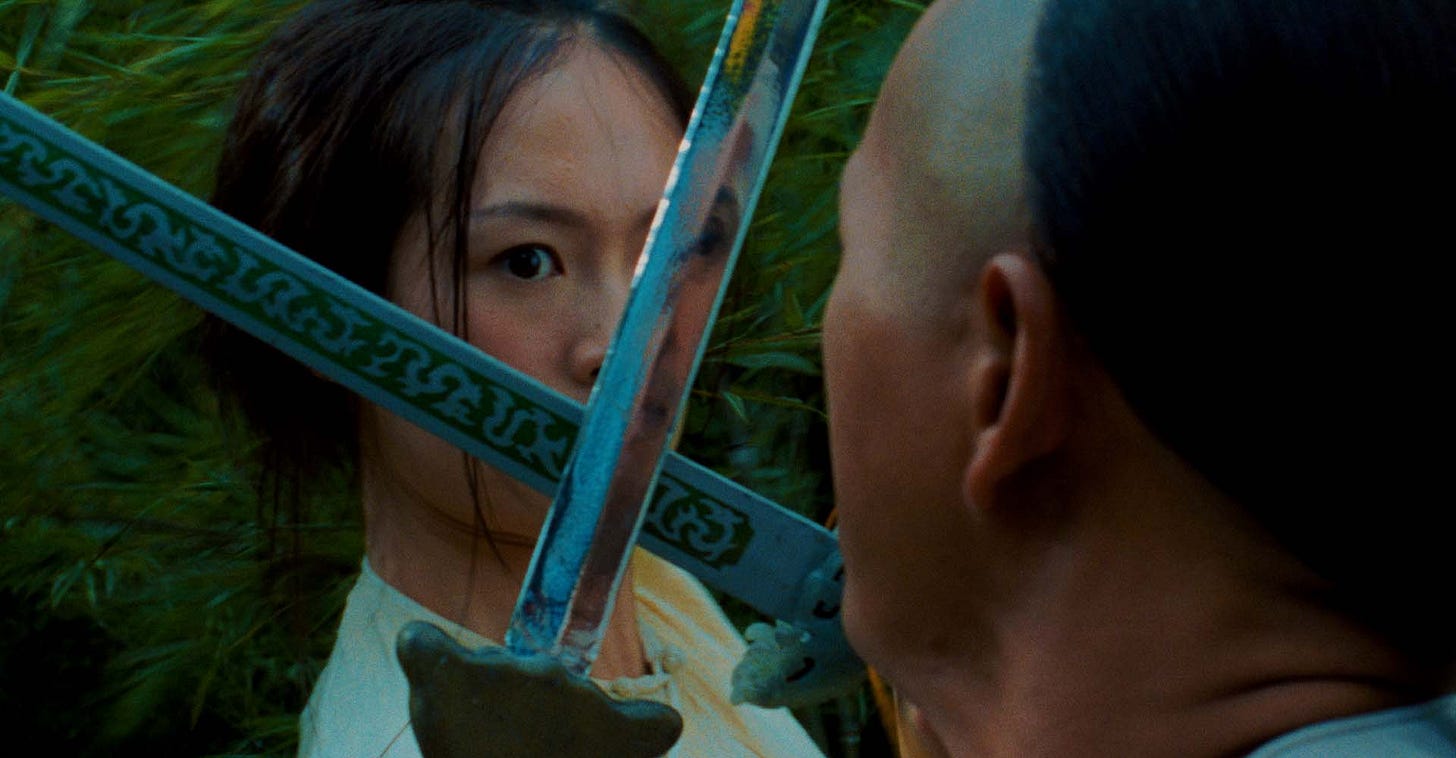
The Wuxia genre is further modernized by showing an increased emphasis on modern values like feminism. From 1967 to 2000, social awareness of gender equality has been rising and women have gained more rights in the traditionally patriarchal society. Against the backdrop of global advocacy for gender equality, feminist ideas have become more universal, inspiring people to value the voice and power of female. Modern Wuxia films as well have been greatly influenced by feminist thinking.
In early Wuxia films like Dragon Inn, the Wuxia genre’s traditional display of gender discourse weighs masculinity over feminist ideals. Dragon Inn was shot during the late 1960s when the Cultural Revolution took place, and China’s film industry was affected by internal chaos. The reduced interaction with the outside world had limited the expression of modern values in martial arts films. Dragon Inn praises masculinity through emphasizing the power, wisdom, and leadership of male Wuxia heroes like Xiao and Wu, who are portrayed as the most important characters of the film. In contrast to these male characters, Zhu Hui, the only female hero, listens to Xiao’s order most of the time and acts submissively. Although Zhu Hui shows incredible skills and power when she fights against the secret police, she frequently relies on Xiao to protect her from sneak attacks. The submissiveness of Zhu Hui forms a stark contrast to Jiao Long, who makes her own decision and refuses to be manipulated by others, showing a lack of feminist ideals in the earlier stage of the genre’s development.
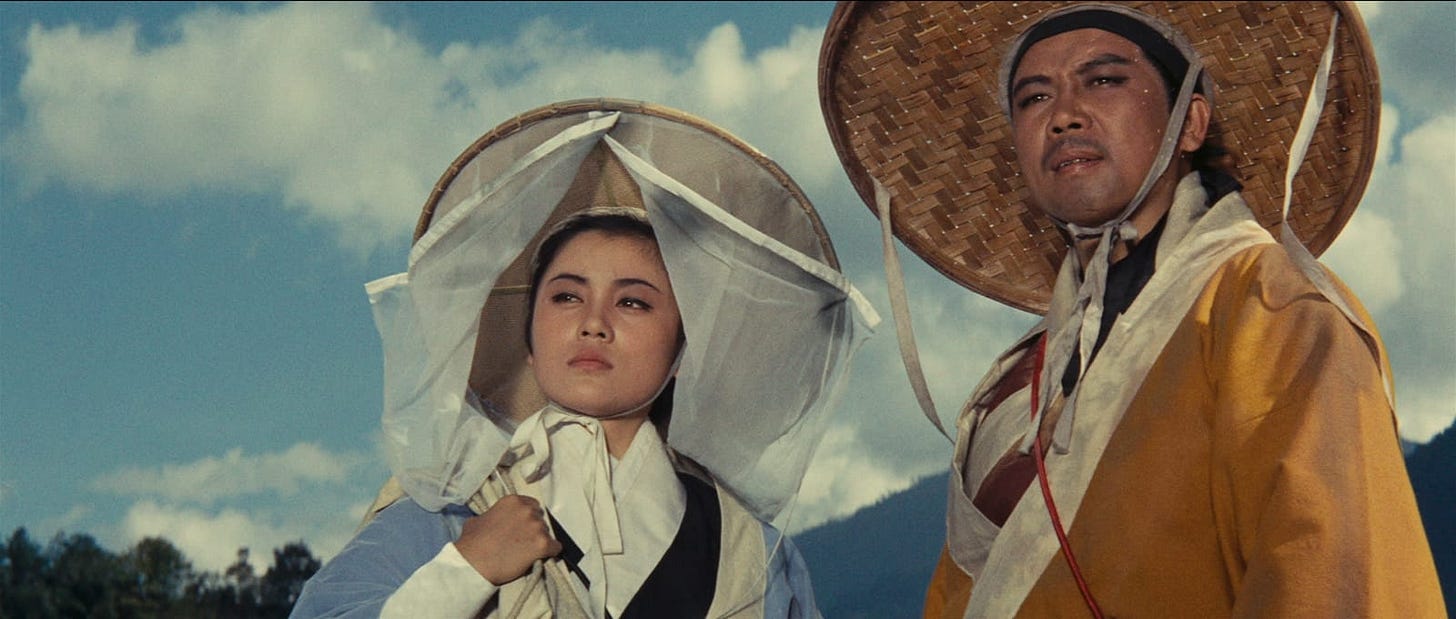
In Crouching Dragon, Hidden Dragon, however, director Ang Lee presents an “antithesis” of Wuxia, a traditionally masculine genre, through highlighting the figures of Nü Xia (女侠 female martial arts heroes), such as Shu Lien, Jade Fox, and Jiao Long, and their multifaceted characters (resilience, ambition, courage, individualism, rebellion), underlining the significance of feminism. In the film, most of the powerful Wuxia heroes are female (except Mu Bai), indicating a weakening of male’s dominant role in martial arts and physical combats. Female warriors also get to fight against male warriors on an equal stance. For example, Jiao Long manages to rebel against Mu Bai who seems to hold the most authority. The film’s portrayal of the power of Nü Xia suggests the potential of female heroes to gain dominance over male heroes, emphasizing a belief in female empowerment.
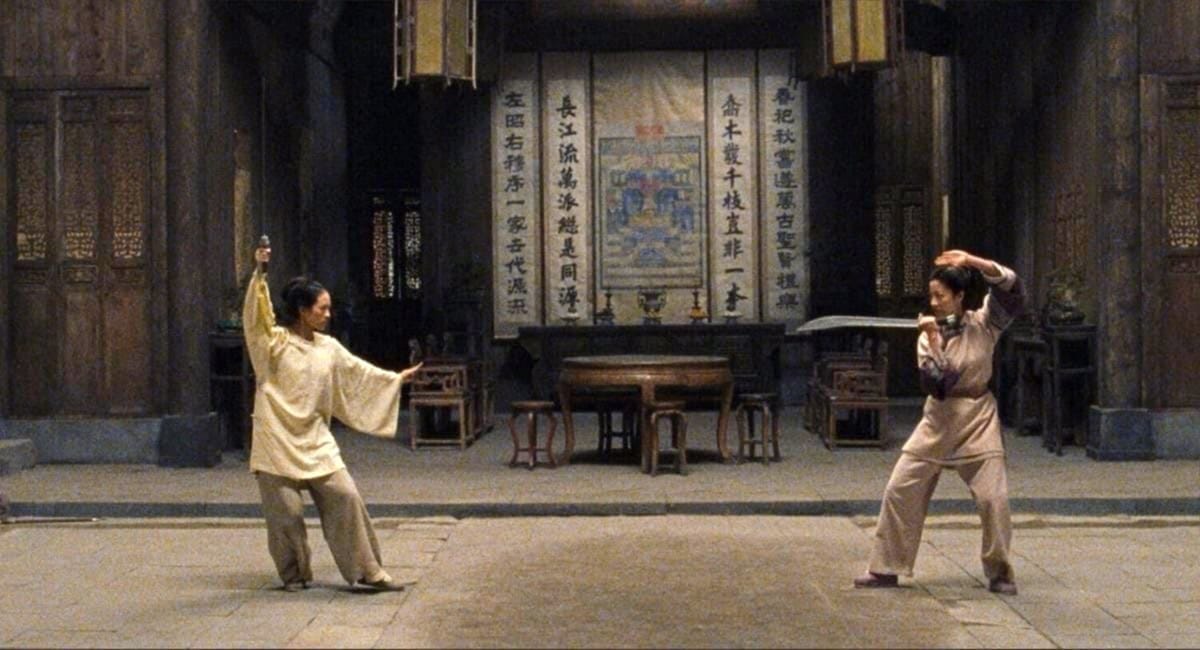
From the past to the present, Wuxia films has undergone forty years of evolution, constantly modernizing in terms of setting, themes, and gender discourse while preserving certain traditions to attract audiences from all over the world despite cultural and linguistic barriers. Certainly, the genre will continue to evolve, bringing audiences from the East and West together to appreciate the timeless spirit of chivalry.
What are some of your favorite Wuxia films? What precious memories and stories do you have with them?


